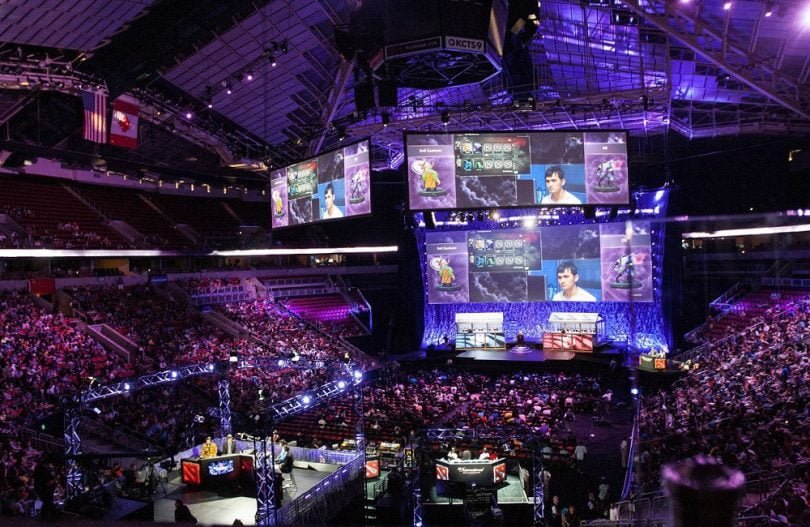Video games are fun. Playing the likes of FIFA, Candy Crush, and classics such as Super Mario and Tetris are cultural norms through which we can relax in the same way we do when reading a novel or watching a film.
But for some, video games are no past-time.
When gaming turned professional
The meteoric rise of eSports – computer game competitions with a handsome cash prize for the winners – is beginning to take the world by storm.
The 2015 League of Legends world final attracted 36 million viewers, five million more than the 2016 NBA Finals between the Cleveland Cavaliers and the Golden State Warriors.
Even European footballing giants Paris Saint Germain have an eSports team, and Manchester City are currently advertising for an eSports Manager to "manage a team of eSports players across the globe and communicate the team requirements to the wider business."
Not yet holidays ! Our League of Legends is already working hard for preparing the #EUCS Summer Split ! #DreamBigger pic.twitter.com/hWgBRMCea5
— PSG eSports (@PSGeSports) April 3, 2017
Booming rewards
In 2016, each member of Wings Gaming, the team who won Dota 2's The International – the online multiplayer's annual competitve tournament – recieved $1.83 million (£1.46 million) in prize money. In comparison, golfer Dustin Johnson won less, $1.8 million (£1.44 million), for winning the 2016 US Open, and Sergio Garcia only just took home more ($1.98 million/£1.58 million) for winning the 2017 Masters.
The total prize fund for eSports competitions has boomed from $6.7 million (£5.36 million) in 2008 to $93 million (£74.4 million) in 2016. This pattern looks set to continue, with the estimated prize fund for 2017 set to be an eye-watering $150 million (£119.9 million).
And some players have become self-made millionaires from playing video games. Dota 2 players Saahil Arora, who goes by the username UNiVeRsE, and Peter Dager, are worth $2.7 million (£2.16 million) and $2.6 million (£2.08 million), respectively.
We're on location at the @EvilGeniuses @XFINITY Training Facility. What questions would you ask @UniverseDota? https://t.co/WNzAdV6UiS pic.twitter.com/r5YqQxP18P
— Monster Gaming (@MonsterGaming) March 10, 2017
Following the money
The likes of Arora and Dager are an inspiration for all wanting to build a career out of their computers or gaming consoles, as seen by the increase in the amount of gaming professionals.
In 2006, there was 1,241 eSport professionals, which by 2016 had increased to 13,555. That's a total increase of 1,092 per cent. And whilst not many tournaments will pay the money that has made Arora and Dager their fortunes, the average tournament winnings for 2016 was $24,097 (£19,268).
Considering that the average UK salary is £27,000, or $33,500, it is certainly a business that pays well. If you're good, that is.
For more information on the growth of eSports, head over to Unibet's The Champions of eSports









